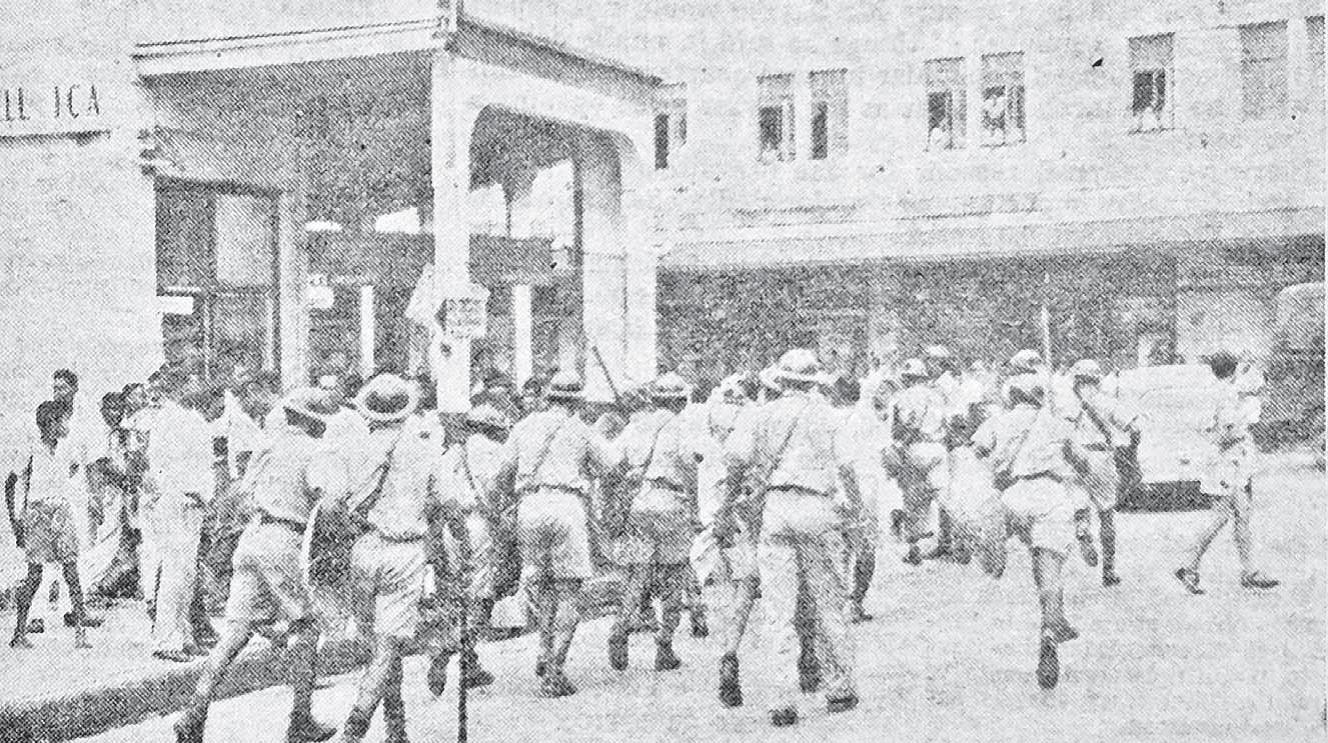ON December 9, 1959 Suva’s first large scale street violence broke out in the capital.
This was after three days of strike by 250 to 300 men who were members of the Whole and Retail General Workers’ Union.
The oil company workers went on strike in Suva, Nadi Airport and Vuda Point, demanding an increase in pay from three pounds to six pounds and better working conditions.
The industrial action disrupted many public services including transport, and threatened essential services such as water and power supply.
Police threw smoke bombs and made several charges at a crowd that had congregated to hear union officials speak in Suva.
Men in the crowd retaliated by hurling stones and rocks at the police.
The Fiji Times of December 10, 1959, said the disturbances were “the worst in Suva’s 77-year history” as the capital of Fiji.
“It was the first time that smoke bombs were used,” The Fiji Times noted.
In the night, rioters looted and damaged shops by tearing away shutters and breaking large glass windows.
To control the rioting, a Public Safety Regulation was put in place and a curfew between 7pm and 5am was declared in the Suva, Lautoka and parts of Nadi.
Police worked overtime to maintain order and a total of 140 charges were laid against rioters in the process.
By December 15, 1959, the old strike ended after both parties signed an agreement to go to compulsory arbitration.
Damage caused by rioters was estimated at 20,000 pounds.
Commenting on the Suva street riot, Governor Sir Kenneth Maddocks, said: “Never before has the colony’s capital seen such wanton hooliganism, with gangs of young roughs, some of them mere children, running around the city smashing, looting and throwing stone.”



